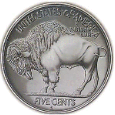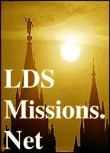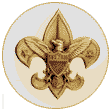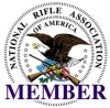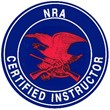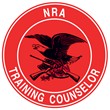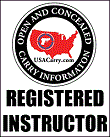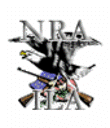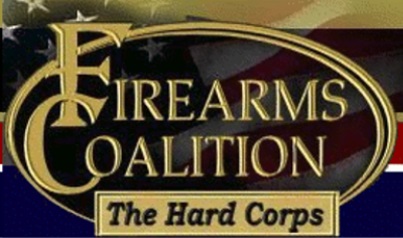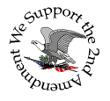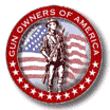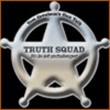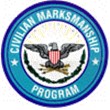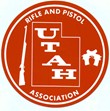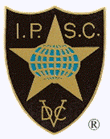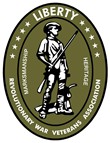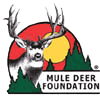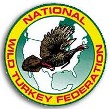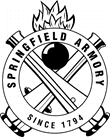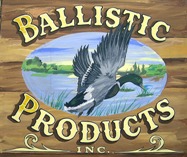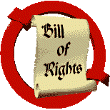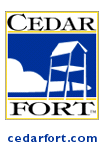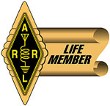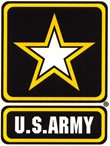| At the solicitation of my friends I will give a brief sketch of my early life.
Seventy-five years have already passed, therefore, it must necessarily be brief, for many things have gone from my mind that I cannot recall. I was born in Upper Canada, District of Johnston, county of Leeds, township of Bastard, on the 15th of October 1827 [1828]. In my young school days my place of birth had to be repeated to my schoolteacher every morning.
I have been told my school days commenced when I was but four years old. As we lived in the country, it was along distance to the schoolhouses; one to the east about three miles, one on the other side about two and one half miles. When there was no school in one house there was generally one on the other. I think I must have learned fast, especially the multiplication table. I can remember the teacher would call up the class to recite, (the class consisted of all the large scholars of the school), and would place me at the head, standing on a bench to make me as tall as the others of the class and if any one made a mistake it was referred to me and I could answer it as quick as it could be asked. But I should have told about my parents before going to school.
About my mother, I can say but very little. Her name was Lucinda Adams, daughter of Daniel Adams and Lois Chamberlain. She was born December 13, 1799 and was married February 24, 1818. She was the mother of nine children. I am the 6th. She died in Canada February 5, 1834. My father was born January 10, 1798; was the third child in a family of ten children. His name was Arza Judd, Jr. After my mother's death, my sister Mary, sixteen years old, was the principal housekeeper. I remember mother's funeral. I was very sick at the time; was lying in the cradle and for want of room was pushed under the coffin. I could reach my hand up and touch the bottom of the coffin. I had a spell of sickness of about three months. In the meantime my legs had drawn up till my knees almost touched my breast and become stiffened. I could not straighten them day or night with all the oiling and rubbing that I could endure.
One day, after oiling and rubbing, father took me in his arms and sat down in a chair and offered me a new copper (value one cent), if I would let one foot hang down natural. It was very painful but for so much money and to please father I tried it and after a long, slow and painful move I did it. I was now praised for such a manly effort and offered another copper if I would let the other down. It was slow and painful but I finally succeeded. From that time on I gained very fast.
In the latter part of 1835, (I think it was) my father found another mother for his children. He married Jane McMann Stoddard, a widow, with four boys. This woman was a kind and good mother to father's children; very kind to me. I must relate a little occurrence that happened shortly after she came to our house. One morning she was cooking breakfast and I was standing nearby. She gave me a nice cake and I proudly stepped to other side of the house where my father was. He said to me, "Who gave you that cake?" (Her boys had always called her Aunt Jane and I, of course, used the same name.) I answered, "Father, Aunt Jane gave it to me." My father, with rather a stern voice said, "No, that won't do; you must call her mother. Mother gave you that cake." That was reprimand enough for me. I never called her Aunt Jane again.
The next thing worthy of notice that I remember was the coming of the Mormon elders, John E. Page and James Bleaksley. They made quite a stir in the neighborhood. They preached new doctrine. My father went to their preaching and after hearing two or three sermons I heard him make the remark if the Methodists would preach as they do and prove up all their points of doctrine like that how I would like it. The elders frequently came to our house [and] on one occasion found me laid up with an attack of the phthisic or perhaps I should call it croup, a something that up to this time in my life I had been subject to frequent attacks. It often made me crazy. The elders proposed administering to me and with Father's consent they did so and I was speedily healed and that was the last attack I ever had of that complaint. In the fall of 1836 father, mother and the older children joined the church and meetings were held at our house frequently and many strong testimonies borne by the Saints and there was a general time of rejoicing and many received the gift of tongues.
On April 27, 1837, I was baptized in the Church of Jesus Christ of Latter-day Saints, by James Bleaksley. I think it was on the following summer my father's brother Ira Judd came to help father with his haying. While at dinner one day the conversation came up about father's big family (for he now had nine children); father asked Uncle Ira which he would rather have, Daniel (that was my oldest brother) with his yoke of yearling steers or take Zadoc with nothing. My uncle made choice of me.
So for many years after that I lived with my Uncle Ira Judd. He had a wife and two children. He worked his father's farm and had the care and oversight of all of grandfather's affairs. With my uncle and family I found a very good home.
About all that had joined the church had sold their possessions and had counted on starting to Kirtland, Ohio, in the next spring 1838, but owing to some trouble arising between some party and the government our folks thought best to start sooner, so as soon as we could get ready about mid-winter, cold deep snow, we hitched up, or I should say yoked up, for we had only ox teams and out into the snow,-- father, grandfather and Uncle Ira, three families, six wagons, and some loose stock. We made quite a show for that time of year. The wagon tires rolling on the frozen snow could be heard for a long distance. It all went well with the company except the cold weather, but with me it was too much walking. I drove cows. My stiff leg and weak ankles could not stand it. In four or five days we arrived at the St. Lawrence River and I was so badly used up I was obliged to ride the rest of the way and it was several days after we arrived at the place of destination before I could stand on my feet; in fact, my weak ankles always did bother me until I enlisted in the Mormon Battalion. There I walked it all the way.
When the company arrived at the St. Lawrence River it was not considered safe for strangers to venture on the ice alone, so a man was found that would pilot us across the river, a distance of about two miles. He got a large armful of pine and cedar boughs and told the teamsters not to let their teams get closer together than four or five rods for too much weight in one place might break through the ice. We could not go a straight course on account of air holes and thin places in the ice where the water ran more rapidly. We were soon stretched out in a long string on the ice. When the pilot came to an air hole or a turn in the road or a dangerous place he would drop a twig to warn the teamsters to be cautious. We all crossed over in safety and after traveling about four miles farther we found our new home for the rest of the winter. We were now in the United States, where we anticipated no more trouble from party strife.
Now we are in good safe quarters for the remainder of the winter, let us consider the manners and customs of the land we have just left. So far as my acquaintance extends all were good people. There must be wood enough chopped on Saturday to burn and keep us warm and do the cooking over Sunday, for that day was sacred and a day of rest. My knife, my whistle, my ball or any other playthings I had must be laid away and I must go to Sunday school and meeting. We must be sober or serious and but very little play must be indulged in. To sing comic songs or go to a dance was quite wicked. Such were the conditions of my early home.
In our temporary location we were reasonably comfortable for campers--three families all in one room. With one big fireplace; our stock all turned into our landlord's barnyard or corralled, as we now call it, and fed with his stock. While here nothing of importance transpired; all were happy and patiently waiting for spring time to come when we could resume our journey.
In the meantime the men folks were occasionally making trips to a town back on the St. Lawrence River to get wagon covers and other supplies necessary for the journey. After the snow had disappeared and when the sun was shining warm and bright, the wagons were all taken to a little brook nearby and washing clean and then repainted and put in good trim for the coming journey, and before the roads were hardly dry enough for good traveling we were on the move. Ours were all ox teams and when we all got together our Canada company numbered about thirty wagons.
Our method of travel was to start Monday morning and travel five days, then if a convenient place could be found, lay by and wash and clean up and have meetings Sunday. Frequently those living near would come to our meetings, for it was given on Saturday there would be meeting the next day. John E. Page was a good preacher and generally interested the people. Then when Monday morning came all were fresh and well rested and prepared for the journey. We were traveling through a settled country, so it was not necessary to load with extra supplies. A sack of flour or a few pounds of sugar could be had almost any day. Loads were light, but if our teams traveled twenty or twenty-five miles a day we thought we were doing very well. Sometimes we would come to a steep hill that was not safe to start down without locking a wheel and our wagons were not fixed for that kind of travel and only two or three loose chains in the company, so only two or three wagons could go down at a time. Then the chains were brought back and used by others, so it would take a long time to go down one hill. Such were the conditions of travel in those days whereas now it would not delay five minutes. Thus matters progressed until about mid-summer when it was thought best to lay by and give the teams a rest for a few weeks and some of the men found a chance to work in the hay fields.
Here I saw a new and novel way of hauling hay. When the hay had been cocked up and allowed to settle a few days, one man would take a horse, harness a long rope attached to the whiffle tree, place the rope around the hay-cock, attach the other end to the whiffle tree and start the horse and drag it over the hay stubble, a distance of one quarter of a mile, and with very little waste. One man would haul it and two men stack it. After the teams were somewhat recuperated we started again and the next thing of interest was our arrival at Kirtland.
When we first started we expected this would be the end of our journey. Father had sent money ahead and bought a house and a small farm here, but we only stayed at the place a few days and gave the teams another short rest; but while here I with others had the privilege of visiting all the rooms in the Kirtland Temple, that sacred house where the Lord has shown his servants such glorious visions, where Elijah the prophet had come to reveal the covenants to seal the hearts of the fathers to the children, and the hearts of the children to the fathers, and other great and important events transpired here in this the first temple built in this the last dispensation; a house built when the Saints were few in numbers and poor financially.
Our stay here was short. Apostates and mobbers had caused nearly all the good and worthy people to leave the place. The Kirtland camp had started for Missouri only a few days before we got there. Kirtland, then, was no place for Mormons, therefore we were not long in making ready to follow on their trail to Missouri.
We still kept up our method of traveling five days in a week and laying by Saturdays and Sundays when a good and convenient place could be found, but I do not know if they were not a little more particular in finding a good place for I believed sometimes we traveled all day Saturday. However, nothing of importance transpired until we got to Missouri, late in the fall we came to a little place called DeWitt. A new place just being started by the Saints--a very beautiful place with broad acres of rich soil covered with grass and plenty of timber nearby, pleasantly located on the bank of the Missouri River, which at that place was about a half a mile wide.
The location seemed to please our company. I think all concluded to stop and our presence and help was much needed to strengthen and build up the place. My father and Uncle Ira Judd, (and I guess the company generally) cut a lot of wild hay for winter feed and cut logs for house building and prepared for the coming winter.
But previous to this some of the neighbors had objected to the Mormons building there and had made some threats, but now seeing such an increase in numbers and such sure calculations for building, they rallied their mob forces and called on their neighbors farther away to come and help drive off the Mormons. Their numbers were much greater than ours and their threats so loud and severe it was not considered safe for our people to scatter out to their work, therefore gathering hay and building was stopped. Guarding and taking care of our stock was all we could do. Some few shots were fired on both sides; both parties seemed determined.
In the meantime a petition was sent to the governor of the state for redress and a request to our brethren at Far West for help for we considered we were in danger. The governor paid no attention to the matter but the brethren at Far West did, for quite a number of them came to our assistance and brought advice from the prophet Joseph for us to leave there and go to Far West.
This state of affairs was very trying to some of our sober, serious Christians that had been taught that it was wicked to fight; it almost rocked their faith in the gospel; to take up arms and try to kill their fellow mortals was a new doctrine that some could hardly endure and it was reported some feigned sickness and stayed in their wagons, while on the contrary some of the roughest of the company that cared, seemingly nothing for religion, were always ready and even anxious to make battle with the mob, and so we find it in our day--some are willing to die for their religions but not willing to live it.
Well now with our present force we considered ourselves safe. The mob dare not attack us, so after helping the first settlers use up their corn they had already gathered and also some honey they could not carry, we were not long in getting out on the road, leaving hay, house logs, which now we had no use for, soon forgetting our plans for building making comfortable home; the brethren from Far West riding their horses, some in the rear and some in advance.
[Exodus from DeWitt] Our first days travel brought us to a beautiful grove of timber; here we camped for the night. Here we buried old Sister Downey. She had traveled with us all the way from Canada. She was old and feeble and so much rough usage was more than she could endure. She was buried without much ceremony-- without any coffin--wrapped in a quilt and put in the grave. It was a cold, frosty morning but the company was not long in getting started on the road.
I was a barefooted cowboy, having two or three cows to drive. When I supposed the company was ready I started the cows out on the road. The whole country outside the thickest timber was covered with grass, which this morning was covered with white frost. I had not gone far until I found my feet very cold. The cows were anxious to eat but with whip and rocks I kept them moving until I found I was way ahead of the company; suffering with cold feet, I still plodded on, and in this condition the brethren from Far West on horseback overtook me.
One of them kindly offered to drive the cows and to take me up behind him on his horse. He told me to put my feet up on the horse's back and sit or squat on them and hold to him. I did so and soon became quite comfortable. To this day my heart swells with gratitude for his kindness. I never knew his name and perhaps never shall. I believe that was the most uncomfortable cow drive I remember of.
I think we were four or five days getting to Far West, where we found our brethren under arms. All the outer settlements and ranchers had moved to Far West on account of mob threats and violence. We camped here, living in our wagons and tents or such shelter as we could make with poles and brush; no house room could be had. We remained here several weeks, during which time much stormy weather occurred with a good deal of snow--quite disagreeable--and to make it worse our provisions consisted of corn-meal and Missouri pumpkins. The pumpkin Johnny-cake gave me diarrhea as long as I ate it. In the meantime the mob were encouraged by the state militia being sent to their aid, demanding the surrender of our leaders and all our arms. My father had previously (having no gun) taken the handle off his butcher knife and replaced it with another about three or four feet long, willing to be of some use and to make as much show as possible. In delivering up the arms this had to go with guns and swords, which was all private property but was never returned.
But previous to this, Hinkle, a colonel in our ranks, had visited the enemies camp which was about one and half miles away, and had agreed to get the surrender of Joseph and Hyrum Smith, and he returned with false reports and fair promises and persuaded them to give themselves up. Accordingly, in the evening they went to the mob camp and on their arrival the mob commenced a yell that far exceeded any human noise that ever I heard, both for loudness and terror. It was plainly heard all over the town of Far West and was continued loud and long, ferocious, for nearly one half hour. The next day the town was searched for arms and prisoners.
This was the time were the arms were given up. The brethren were required to all assemble, each one bringing his weapons of defense, on the public square, and were strongly guarded by the mob and the militia. The officer preached, scolded and threatened if the Mormons ever convened together again. Our men were required, each one at a time, to come forward and lay down his weapons of defense and sign a treaty stipulating their property should be sold to defray the expense of the war and were given till next spring to leave the state. Many, or nearly all the principal men were taken prisoners and others were allowed to scatter and shift for themselves. Now those who had houses or homes moved back to them so our company moved to different places. My uncle went with Allen Taylor who lived about eight miles from Far West.
He had previously raised a good crop of corn, which he generously shared with my uncle. His house was small--a one-room log cabin, but we were welcome and were quite comfortable considering what we had been. Here we spent the remainder of the winter. About this time my oldest sister Mary was married to John E. Page.
The best show for grinding corn was a one horse-power mill, about eight or ten miles away and it was not considered very safe for Mormons to go there, so our only chance was to get large ears of corn and boil it until it was a little soft, and then rub it on a grater, which was made by punching holes in a piece of tin and bending and nailing it to a board, something like a nutmeg grater. This was a slow way of grinding, but I was big enough to furnish all the meal the family needed, and many a time I rubbed the hide off from my fingers or knuckles by carelessly getting too close to the grater.
My father found a place with another family about three miles from where we were but across a trackless prairie. I used to visit there occasionally and while crossing the prairie I have often seen herds of wild deer. It was a good country for wild game.
That family had another way of making corn meal. The stump of a large tree near the house was cut flat and level and then a hole dug in the center about eighteen inches deep, large enough to hold several quarts of corn; the bottom made rounding like a mortar and a large hardwood pestle made to fit the mortar. The pestle was attached to a spring pole just stiff enough to raise the pestle. The pole was fastened to the corner of the house. With this they could mash the dry, hard corn any way to get something to eat when hungry.
We had a long tedious winter, living on corn bread, yet nothing note worthy transpired.
When spring came the Mormons left the state as soon as they could. We were on the road as soon as the snow disappeared. Teams were poor and often two or three families would be loaded into one wagon, but corn and meal were cheap and sometimes teams were fed too much.
The roads were muddy and our progress seemed slow while traveling through the enemies country. When we arrived at the Mississippi River, near St. Louis, we found many families that had been dropped on the ground and the teams returned to Far West to get others, but we all had to wait several days because the river was so full of floating ice the ferry boat could not run but we were finally ferried over and landed in the state of Illinois and I guess as much rejoiced to get out of Missouri as we were to get into it. We were kindly received by the people and felt we were out of the reach of all mobs.
When spring planting time had come my uncle with his family found himself in a little town called Bloomfield. Here he went to work. A neighbor came to me and asked me how much I would charge to cut cornstalks for him per day. I told him I would work for a picayune a day. He said: "Come to his house the next morning," I went and was given a large sharp hoe and showed to a last year's corn field, and was told to cut close to the ground. I could cut about two acres per day. I worked four days all alone and in settling up with my uncle he paid one dollar which was equal to four picayunes a day. My uncle rented a piece of land and raised a crop of corn. When threshing time came this man that I cut corn stalks for got me to ride his horses on the threshing floor. Think I worked for him seven days for which he paid me twenty-five cents per day.
The next move I remember was to a farm about five miles from Springfield, Ill., Sangamon County. Here we rented land and lived, I think, two years. This is the last place I saw my Grandfather and Grandmother. They passed through all the Missouri troubles and stood it fairly well but they were getting old and quietly passed away about 1842. He was sixty-five years old at his death. They both died within a few months' time of each other. I was not living there when they died for my brother Hyrum had come for me to go and live with father previous to their death.
My father was living on a farm a few miles below Warsaw on the Mississippi River bottom, where the fog would rise every morning so thick we could not see but a short distance and would remain until nine or ten o'clock. It was a sickly place, but after raising one crop father moved to Warsaw town. In the latter part of the winter in 1839 father left his family at Warsaw and went to Nauvoo, about twenty miles up the river, to build a house previous to moving there.
We went to an island opposite Nauvoo and cut house logs and hauled them over on the ice and built a comfortable log cabin; got it nearly completed and was taken sick and had to come to his family in Warsaw. Too much hard work and exposure had brought on his fatal sickness. In about three weeks he died and was buried in Warsaw graveyard. Just before starting to build in Nauvoo he sold his land and claim in Missouri, having been driven from it by the mob and did not expect to go back. He sold it for a mere trifle--a small pony and some household effects. Now my good stepmother having buried her second husband, gathered her family around her and concluded to move to Nauvoo. By the help of the boys she managed to complete the house father had started in Nauvoo and moved into it. She also got the city lot fenced and that same year 1840 raised a fair crop on it.
I was sent a few miles out of town to drive a team (two yoke of oxen) to break up new land, but only expected to stay two or three days, but the man's work increased or he liked my help. He wanted me to stay longer, but I did not want to. In his talk to get me to stay he told me mother said I should stay, that I was only a nuisance at home and I had better stay but I could not be persuaded. I must go home and get a clean shirt and then I would see about it. On my road home I got to thinking what he had told me Mother had said about me and it set very, very heavy on my mind. I thought if Mother did not want me around, who did? and what could I do. I surely had the blues. I got home without being seen and slipped around behind the house and sat down out of sight. I remained there a long time. Finally one of the boys happened to see me and went in and told mother. She came out and wanted to know why I did not come into the house. I told the full story; she soon learned the cause of my feelings.
She had said no such thing and gave me many words of comfort and showed herself to be the kind and affectionate mother which she always was to me and I was soon made happy.
We spent the summer and winter here, but many times our whole meal was nothing but salt and potatoes. In the following spring my Uncle Ira came from his home near Springfield to pay us a visit and see Nauvoo. I went home with him to live with him again. While living here my uncle thought best for me to learn a trade. Being small and puny he thought the tailor's trade the most suitable for me. Accordingly he found a place with P. G. Bowman, a good mechanic and a Mormon, but not very religious. I worked with him about one year and I was getting so I could help him considerable and I suppose he thought I was liable to run away at any time, as he had done, for he ran away from his home to learn the trade and then before his time was out he ran away from his boss, so he took me to the Probate Judge and had me bound to serve him four years, I to have clothing and board, etc., and a certain amount of schooling and he to pay the doctor's bill in case of sickness.
About two years after that he hired a girl to do the housework while his wife, being a good seamstress, help(ed) him with his work, which was now coming in quite plentiful, but he soon fell in love with the hired girl and quit business, shop and all and left the country, having previously sent the girl to where he wanted to go.
Before leaving he had pretended to his wife he wanted to go back and see his folks. His mother was still living and she (his wife) the good soul, took it all in good faith that he was honest. With me he had made arrangements that I should sell a few articles outside the house and get money to pay passage and follow him. All this was done and yet his wife thought he was a good man until he wrote her a letter telling her to look out for herself, but when I told her of the arrangements he had made with me then she gave him up as a rascal.
I now commenced going to school on his credit, but I had not finished the quarter's schooling until it was intimated there was no one to pay the bill, although a kind friend, L. B. Adams, told me to stick to the school he would pay the bill. This was L. B. Adams, son of the probate judge; a good man and a kind friend. But I did not feel at home in doing so, so I quit and went to work in another tailor shop for three dollars per week, boarding with my former mistress, the grass widow, Harriet Bowman.
I have forgotten to relate a circumstance while living with my step-mother in Nauvoo. While living poor and enduring hard times, Mother took me with her boys to the Patriarch, Joseph Smith, Sr., to get patriarchal blessings. She could not pay for all, but we boys each received a blessing which was not recorded. I remember some things that were said to me. He told me my name was recorded in the Lamb's book of life and the angels had charge to watch over me continually and that I was one of the 144,000 that should stand as saviors upon Mr. Zion in the latter days. I did not realize the importance of that or scarcely knew the meaning of it then, but I could not help but remember it.
I was the youngest, then living, of the family, and my kindred had almost all joined the church, so this privilege apparently could not come to me by birthright and how could he know anything about it unless directed by the good spirit. But as time rolls on what do I find--my kindred have died and gone and a large genealogy of the Judd family containing thousands of names is put into my hands and it is my duty to see that the work for my ancestors is done, and by my exertions and the help of friends some fourteen or fifteen hundred have been worked for and many more yet to do. (A. D. 1903) Surely I should accept this as a testimony to the truth of the Gospel.
Right here I might relate another circumstance that to me was a sufficient testimony of the truth of the gospel. I had for years been more or less acquainted with the Prophet Joseph Smith. I had many, many times heard him preach; had heard him talk with others in common conversation. I had known his voice as well as I do that of my most intimate friend. At the time of his martyrdom in June, I was in Springfield, Illinois. This circumstance I am going to relate happened late in the fall or early winter, [1844]. The people had usually convened for meeting in a little grove near the temple. A bowery had been built, and seats arranged to accommodate all. A good place for summer meeting. In the meantime the building of the temple had progressed; the roof was on, the windows were in, the floor was laid, but no seats arranged. It was a cold, wet Sunday and a drizzling rain. The meeting had been adjourned from the grove to the temple for there people could get shelter. While waiting for the people to gather and also for the hour of meeting, Brigham Young, Heber C. Kimball and some others of the quorum of the twelve had come to an upper room or a kind of gallery and seemed to be passing and re-passing an open door and window and from the position I had chosen, which was next to the wall and near the stand, I could see them very plainly, and although I knew Joseph was dead, I could scarcely make myself believe he was not there. His look, his motion, his walk, were precisely like that of Joseph and yet it was Brigham Young, and when he came to and commenced to speak to the people his voice was like Joseph's.
In the meantime people had gathered in and standing, huddled close together, made such an immense weight on the floor that the propping under the center gave way and let the floor settle a few inches, which caused quite a panic among the people and some tried to rush for the door, but the loud voice of the prophet Joseph soon restored quiet and only a few were hurt by being pushed down and stepped on. No damage was done, only a few broken windows. The change of voice and appearance I could not account for only that the mantle of Joseph had fallen on Brigham Young.
Well, a few words more about the tailor shop. In my young apprenticeship I was encouraged to take in such jobs of work from my associates or others as I could and to do it at odd spells or evenings when he was away or after he had quit work and by so doing I could get a little money to go to the theater or to get any extras I chose. I bought me a pocket bible and some other books, but my wants were few and necessities less and I soon found I had quite a lot of little change, so I went to a pawn-brokers shop and told the man I wanted a five dollar gold piece for a whole handful of silver. He gave me a very nice piece, which I carried as a pocket piece for quite a while. Now I thought I was rich, but it soon became an old story an I changed it for a five-dollar bill and sent it in a letter to my good stepmother in Nauvoo, requesting her to give it to the temple building. I soon received a kind letter from her. She was much in need of money at the time and her boy should work on the temple stone quarry and give me the credit. I was satisfied and glad I had sent it to her. (This happened before my boss left his wife.) I continued working in the tailor shop for three dollars a week for about a year.
About this time trouble was arising in Nauvoo, which finally culminated in the massacre of the prophet Joseph and his brother Hyrum and the agreement of the Saints to leave Nauvoo. I felt that my best home was with the Saints; and in the fall of 1844 I gathered my effects and the first chance to go with a team I started for Nauvoo, and after arriving there I soon found work in a tailor shop. Here I spent the winter. In the meantime all my comrade tailors were all invited to the temple to receive endowments and I suppose through their influence, I also was invited, for it was seldom that boys of my age were given that privilege. It was generally the old and faithful that got their endowments there.
One Sunday I happened at a meeting which had convened for the purpose of ordaining Seventies. While not supposing I was a candidate for that office but from mere curiosity, was there among the people, some one called my name and when it was presented for acceptance, some one else offered to vouch for my worthiness and I did not know either of their names, so I was ordained and organized into the 32nd quorum of Seventies and I met with that quorum several times in Nauvoo and gave the clerk my genealogy as far back as I could, which was back to my great grandfather, Thomas Judd.
The main topic was now getting wagons to move with the next spring.
All the fences for miles around were searched for oak rails that would do to work into wagon timber. Iron was scarce. There was little or none to be had in Nauvoo and many wagons were made with wooden tires which seemed to stand the trip very well.
My brother, Daniel, got in with a family by the name of Joseph Coon and went out, I never knew where, to work to get an outfit to move west with the Church. I never heard from him since.
My brother Hyrum's wife's uncle, Daniel C. Davis (afterwards Captain of Company E. in the Mormon Battalion), was organizing a company to move west with the Church. Hyrum joined his company and in it found a place where if I would drive a team, I could have my effects hauled and get my board while traveling. I gladly accepted this position, for then I could travel in the same company with my brother Hyrum; so I put my trunk into Brother Daniel's [probably Hyrum's] wagon and got my board and washing for driving team. I had a good home while traveling.
It was early spring and much of the prairie the company traveled over was quite soft which made our progress slow. After the country became dry and the weather warm the newly made wagons soon needed repair. In selecting the timber for making them, no doubt some of it was not well seasoned. On such occasions the company would lay by, the blacksmith would build a forge, put up his bellows and start shop, cut and set tire, till all was made tight.
With the exception of these occasional stops nothing of importance happened until we had passed Pleasant Grove or Hickory Thunder and Mt. Pisgah, two places which had been designated for people to stop who had part of their effects back or those who wished to return and help others from Nauvoo. Here on this wild land crops were planted and it proved to be a help to others who came later. But when our company got within four or five days travel of Sarpee's Point, or near where Winter Quarters was afterwards located, we met brethren right from the Church authorities, as they were several days ahead of us, with a request that all who could possibly be spared should enlist as soldiers in the government service to serve as such for the term of one year. This was quite a hard pill to swallow--to leave wives and children on the wild prairie, destitute and almost helpless, having nothing to rely on only the kindness of neighbors, and go to fight the battles of a government that had allowed some of its citizens to drive us from our homes, but the word came from the right source and seemed to bring the spirit of conviction of its truth with it and there was quite a number of our company volunteered, myself and brother among them.
We were now requested to hurry on as fast as possible and join the main company which had been enrolled on the 16th of July [1846] but our company did not get there until the 20th. Our number made up all that was lacking and we were organized and numbered with the Mormon Battalion and we commenced drawing rations of flour and bacon.
We were allowed to go to an Indian trading post, which was there on the bank of the Missouri River and each one draw a blanket to be paid for out of our pay, which was to be eight dollars per month. We were also allowed I think it was $3.50 per month for clothing money, which was paid to us in advance for the year. This gave us a nice little sum of money for poor folks to own. The main part of this money was sent back to wives or children or relatives who had been left dependent and helpless in a wild country.
As yet we had no cooking utensils. We were organized in messes of six men to cook, eat and sleep in one tent. Our rations were abundant--about eighteen ounces of flour per day, four ounces of pork, sugar and coffee plentiful. We drew our rations for the mess of six men in one bulk. Now as we had no cooking utensils a lump of dough was mixed by pouring water in the sack which had been opened and the flour hollowed out to hold the water.
Now when the dough was properly mixed, each man would get a stick similar to a common walking cane, go to the sack and get a lump of dough, pull it out in a long string and wrap it around and around the stick and then hold it to the fire until it was considered baked; then eat. The pork we did not use much of. In this way we traveled down the Missouri River for Fort Leavenworth; happy and cheerful, singing and dancing.
One day one of the boys rather an eccentric character, had procured an odd kind of hat with a feather in it, similar to an officer's uniform. He went ahead of the company several miles and about noon called at a farmhouse and asked for his dinner, stating he was the colonel of the Mormon Battalion.
Of course he was given his dinner and the farmer thought himself quite highly honored to have such a guest. When the company came to the farmhouse quite a number of the boys stopped for a drink of water. The man was telling them that our colonel had stopped there and got his dinner. Some of the boys inquired how he looked and what kind of a man he was and from the description given the boys recognized the comrade with a feather in his hat, and had a hearty laugh about it.
After the company had camped for the night the man with a feather in his hat came walking back into camp. The boys saw him coming and knowing what he had done, began to hail him and holler: "Here comes the colonel." The news soon spread through the entire camp and so much yelling and cheering brought the Colonel Allen from his quarters to enquire what was the matter. On being told the circumstance he also had a hearty laugh over it.
In due time we arrived at Fort Leavenworth. Here we were armed with flint lock musket. It was said to carry an ounce ball one mile. Its weight was twelve or fifteen pounds. Its accouterments were a large cartridge box with heavy leather belt two and one fourth inches wide to carry over the left shoulder, a similar belt with bayonet and scabbard attached to carry over the right shoulder and then a waist belt correspondingly wide and heavy all white leather, and we were required to keep them clean.
Our muskets had to be cleaned often. Also a knap-sack in which to carry our clothing and any other little necessities. It was so arranged that a strap came in front of each shoulder and under the arm with a long strap to reach around our bedding.
With all these straps in front and the filled knap-sack behind, we were nearly covered from neck to waist. We were required to carry all these fixtures, our clothing and bedding and a few rounds of ammunition and then a canteen in which would hold three pints of water, and then a small cotton sack called a hover-sack, in which to carry our dinner and sometimes a day or two rations. These also were made to swing over our shoulders.
But to ease up on us a little the officers allowed each company to club together and buy a four mule team and wagon, in which to haul our knap-sacks and bedding, each man to bear an equal share of the expense. This was a great relief for a while, but when hard times came on, wagon broke down or teams gave out, we had to shoulder our knap-sacks and bedding.
Here in Fort Leavenworth we were given cooking utensils, a camp kettle, frying-pan and coffee pot. Here we drew our clothing money for the entire years, $42.00, which as I have said was mostly sent back to needy friends and relatives.
Here our commander, Colonel [James] Allen, laid in a supply of provisions to last the Battalion one year, but by a mishap it was sent the wrong road. After a few days rest and a little drilling and learning to use our guns and properly form ourselves into ranks and getting baggage, wagons ready we took up the line of march. Our Colonel being unwell at the time was not able to go with us, but it was expected he would overtake us in a few days. The next news we heard of him, he was dead. That cast a gloom over the entire company. What could we do? Our provisions were not within our reach, our Captains were not yet commissioned; it was said we could not draw rations, so a council of officers was held and it was decided to send to Fort Leavenworth and ask for a commissioned officer to come and take command.
Accordingly a commissioned officer was sent. His name was [Lieutenant Andrew Jackson] Smith. Colonel Smith took command until we arrived at Santa Fe and with the Colonel and staff came a doctor whose name was [George B. Sanderson] Sanders. His principal medicine was quinine. The doctor and his quinine played quite a conspicuous part on our journey. Every morning at a stated hour the fifes and drums would play a certain tune that was the sick call. If anything was ailing, any of the men, if they had taken cold or had blistered feet through walking in poor shoes or anything else, they would go at the sick call and the orderly sergeant would go with them and when all the sick were gathered the orderly sergeant would march them to the doctor's quarters, and after a slight examination the doctor would give each one a nice little paper containing a dose of calomel. All were treated alike. They were told to take it with water before eating breakfast. The men fearing to be salivated (?) would often bury it before getting back to camp. After a while the doctor found out the men did not take the calomel. After that they had to take it in his presence. During the time men were on the sick list they were excused from guard duty, but had to carry their gun and knap-sack. We were on the march every day; all fresh and not much used to walking and it was hard on many of us.
There were several good fiddlers among us and some one had managed to get his fiddle stowed away in a captain's wagon and after a hard day's march, the fiddle was brought out and a lively dance would commence and would continue for the entire evening. There were no girls but many of the boys would take the girls side and do the dance all right. The boys did say it was the best way to rest and they felt better than they would to sit down and sit still.
We were on the route for Santa Fe, nearly one thousand miles distant. Several companies of cavalry were on the same route and maybe passed us. They could out travel us, but before we got to Santa Fe, we passed them. When nearing Santa Fe we overtook a company that had a good supply of provisions and ours was getting quite low. Our colonel asked to borrow a few sacks of flour. The captain at first refused. Our colonel told him we must have it if he had to call out his men and take it. We got the flour all right.
When within five or six days march of Santa Fe a message or dispatch was sent to us from General Kearney who was then in Santa Fe, saying we must hurry. All that were not in Santa Fe by such a date could not cross the mountains for California. We were considerably jaded and at our present speed of travel we could not make it, so it was decided to take the best men for traveling and the best teams and push through and let the others come as fast as they could. Accordingly a few of the best of each company were selected and pushed ahead, I with others, and we arrived there in time to save disobeying orders of General Kearney.
From Santa Fe to California was considered a very hard trip so we were picked over and divided again. The most able bodied men to go through to California, the sick, the crippled and worn out and the laundresses, four women from each company to turn to Bent's Fort and there spend the winter. I was again selected to go ahead. After resting a few days and getting some fresh teams and some clothing (for here was our first pay day for service and considerable money was sent back to needy relatives and friends) we made ready for a start. We were told we would get to California in sixty days, but we were on the road one hundred and twenty days. So our commissary laid a supply of provisions for that time (sixty days) but it was scant, for provisions were scarce then at Santa Fe; two ounces per day flour less than common. There was no wagon road and no one that could be found knew the country, so three men, professed mountaineers were employed as guides or pilots. One would go what he supposed was three day's travel from us and look out the best route for a wagon road and then return and lead the company that distance, and by that time another pilot would have explored the country and returned, and by so doing we always had a guide that knew the country.
After traveling about twenty-five days a bearing was taken with instruments. It was found we were a long ways from California. We had until now been eating our provisions as though we would get to California, where there was more, in sixty days, but it was now decided it would take a much longer time, so our rations were reduced one-fourth less. This began to tell hard on the men, yet we kept pushing ahead until another fifteen or twenty days and then another reckoning was made and found we would yet have to travel a long distance, so our rations were reduced again to one half and we were a long ways from any place where more provisions could be had. Our best and only show was to push ahead and we did.
About now we came to some half-breeds, Indians and Spanish. From them a few of us as individuals could trade for a little dried meat, which we then called very very good. We were now getting quite hungry and we learned from these people it was but three days travel to a Spanish town where we could get provisions. It was off from our route but a good wagon road to it. Copper ore had been hauled on the road many years. Our colonel said; "Let us go down and get provisions. It was going right among our enemies but we were all willing to go to get something to eat."
So next morning we started on the copper mine road for the Spanish town all rejoicing. After traveling three or four miles the colonel ordered his bugler to call a halt. All hands wondered what was the matter. After a moment's breath the colonel turned to his staff, officers and pilots and said: "Gentlemen, I started for California and damned if I ain't going there. Pilot, you hunt a road for the wagons on the course we have been traveling and go ahead and find a camp ground." So we turned our course about right angle and started for California.
We afterwards learned that the Spaniards had been closely watching us and they expected we would go down to that town and had therefore, collected a large force of their soldiers at that point, and no doubt if we had not turned our course we should have had hard fighting to do and perhaps many of us would have lost our lives, but the Lord controlled the colonel's mind and we came out safe.
I should here mention a promise or prediction made by President Brigham Young before we started, that if we would be faithful, do our duty, remember our prayers, we would never be called to face the enemy in battle. This was verified in every instance during our service.
The details of our travels given in Daniel Tyler's history of the Mormon Battalion is given more definite and concise than I can give it here. Those interested are referred to that; therefore I will pass on to our arrival in California.
I well remember the awe, the grandeur and amazement I felt when first I beheld the Pacific Ocean. Seeing such a vast body of water spread out farther than the eye could reach and hear the roar of the waves, created a reverence within me for the greater creator of all things, whose power and might are far beyond our comprehension. If I could but shape my thoughts and put them on paper, I would like to describe the country.
It was now mid-winter; January, [1847]; warm and pleasant--scarcely a mark of frost--which was certainly a blessing to us in our ragged and scanty condition. Flocks of wild geese could be seen any time of the day; herds of horses and cattle, nice and fat, all over the plains, which were covered with a rich growth of vegetation, mostly wild oats, not the pesky kind that infests our fields here but the regular oats, and a tolerable fair grain. This was somewhat cheering, but we were tired and hungry.
We were first located in an old missionary building near San Diego, where we remained but a short time.
We were then moved to another missionary station called San Luis Ray, larger and more commodious, but every room was thoroughly infested with body lice. We were, all soon covered with them and with all our cleaning rooms and washing and boiling our clothes we could not get rid of them, while we stayed in that place. Every day it was common to go out, find a warm sun-shiny place, strip ourselves and hunt and kill lice. It was said the Indians used to eat them.
While here five pounds of good fat beef was given for each man's daily rations, but all this did not stop hunger until we got some bread to go with it. After laying here for a long time, eating nothing but fresh beef, we were suddenly called by General [Stephen W.] Kearny to march to Pueblo, Los Angeles. This forced march of four days was very severe on us. We were called to defend and assist General Kearny against [John C.] Fremont and his company who were our enemies or mobocrats right from Missouri. We never saw the enemy but we were marched to the outside of town and camped in our tents on the bank of a nice stream of water. In a few days we were moved to the bench which overlooked the town. Here we were required to build a place of defense by throwing up a bank of earth and making a ditch wide and deep enough so a horseman could not easily ride over it, but the job was not completed by us.
Nothing worthy of note occurred with me except on one occasion. Through taking cold or something else, I lost my voice; I could not speak above a whisper and so could not do guard duty and it was necessary that I should be reported on the sick list. This was the only time I was on the doctor's hands, which lasted four or five days. Our time of discharge was now drawing nigh. We were allowed to buy horses or mules or anything for our outfit for home. Good horses could be bought for from three dollars to five dollars; beeves from two dollars to three dollars per head.
In the meantime it was considered our discharge was going to leave the country too weak and we earnestly requested to enlist again and a few did enlist again and were sent to San Diego to strengthen that place, but I thought we had done all we were sent to do and I wanted to get home or back to the Church. So my brother Hyrum and I, with a number of others of the same mind, (from forty to one hundred men), prepared ourselves for the journey towards home.
We traveled up the west coast until we came to Sutter's Fort, about east of San Francisco. From here we started over the mountains on the wagon road. When we arrived at the Truckee River we met Samuel Brannan and others, just from Salt Lake, bringing word from the Quorum of the Twelve, which was then the ruling authority of the Church, advising all who had not provisions enough to last them until the next harvest to return to California unless they expected to go right on through to Winter Quarters for provisions were scarce at Salt Lake.
Therefore, I, with a number of others returned to California. I went to San Francisco and looked for work at the tailoring business. I remained there a few days but not finding work that suited, I went to Monterey. Here I found a chance to work in a tailor shop. I worked there a few weeks. In the meantime many of my comrades had stopped at Sutter's and were digging a millrace for Sutter. In digging the race gold was discovered in great abundance.
[The fore part of which is in a book now in the possession of Gertrude Cottam, at St. George, Utah.]
While my companions were digging the mill race for Sutter in which gold was discovered, I was wandering around the country trying to find work in a tailor shop. When the report reached me, I was in Monterey, California, about one hundred and fifty miles away. When the report of so much gold being found reached the people, they were anxious to go there. One man offered to furnish provisions, wagon and team, if men would go and work in the mines and give him a portion of what they found. This company I joined, with the understanding that when my companions were ready to go home, I should go with them. We were soon on the road traveling for the mines.
I had a horse to ride, while others rode in the wagon. An intimate friend of mine took turns with me in riding the horse. One would ride while one walked. We would keep near the wagon, so we could get our provisions at mealtime.
In our second day's travel we came to a ranch at which I had left a horse a year previous. We got that horse so each of us had one to ride. We traveled on in this way until we came near the mines.
We came to where the road forked, one leading to the mines, the other to where my companions were. I let my friend ride the horse to the mines, with the understanding that I would be up in a few days and get the horse; but when I went after the horse my friend had turned him out and could not find him, so I bade good-bye to friend, horse and mines and turned back to the camp of my companions.
They were calculating to go back home, which place was in Utah at that time.
They had got a wagon which was about one day's distance. They proposed to me, that if I would go and get the wagon, I should be allowed wages for my time at the rate of one hundred dollars per day, which should be allowed on my share of the outfit they were getting up for our journey homeward. I got the wagon and brought it safe to them.
I must tell you why wages were counted one hundred dollars per day. A man would take his little Indian basket or common milk pan, go to the place where gold was found, fill it with dirt containing gold, take it to the river, sink it up until the dirt was all washed away, then empty the contents of the pan on to a plate, or any tight dish, fill his pan with dirt and gold again and go through the same process of washing the dirt away, and emptying it on to the pile in the plate. When a quantity of this kind had accumulated, it was put into a smaller dish and a spoonful or two of quicksilver added to it. The quicksilver would gather all the gold and the refuse was then thrown away. Quicksilver and gold were then put into a little buckskin sack, the sack was twisted up and wrung and the quicksilver would run through like water through cloth, leaving all the gold in the buckskin sack, and the quicksilver could be used again for an indefinite number of times. In this way a man would gather a hundred dollars worth of gold, or more, in a day.
This man Sutter had two small brass cannon which he proposed to sell. It was proposed that the Battalion boys buy these cannon, and take them to Utah as a present to the authorities there. The cannon were bought, each boy paying a small pinch of gold to make up the price, which was about seventy-five dollars apiece. They were loaded into the wagon ready for transportation when all were ready to go.
It was decided that we would make a wagon road over the California mountains which would shorten the distance a few day's travel on a new route.
None were to go further than a little valley until all were there, for we must travel together in order to help each other work the road and be a protection against the Indians. A few of the boys went there before the others were ready. Two of them became impatient and anxious to be doing some good, concluded that they would go ahead and look up the intended route, saying that they would be back in the course of a few days, but they never returned.
When the company was ready it started following on their trail. After traveling a day or two, we came to a place where they had camped and near by where their fire had been was a pile of fresh dirt. This looked a little suspicious and a shovel was brought and in digging into this pile of fresh dirt, we found that our companions had been killed and buried by the Indians. We covered them up and put a few stones over their graves and cut their names, Daniel Browelt and John Cox, on a large tree near by. We journeyed on a few miles farther that day and camped. And when all was dark in the night, it was proposed that we load and fire one of the cannon to frighten the Indians, if any were near. We did not know how much it frightened the Indians, but it frightened our stock and they ran and scattered, so it took us nearly all of the next day to find them.
After traveling from here, we saw several parties of Indians, some of whom were wearing the cloths our comrades had worn. We did not molest them but traveled on in peace, occasionally stopping to do a little roadwork. We made good progress on our journey and left behind us a good road, until we got nearly across the mountains. In coming down a canyon we came to large rocks which were impassible with the wagons. They were from eight to ten feet high.
We had no hammers nor drill with which we could do anything with the stone. It seemed almost an impossibility to go farther. Finally someone suggested that we build a fire on the rocks, and as there were plenty of dry logs and brush near, there was soon a good fire blazing on each rock that lay in our way. When the fire had died down and cooled off a little, we found that as far as the heat had penetrated, the rocks were all broken in small pieces which were soon removed with pick and shovel and another fire built with the same result.
After building three or four fires, we found that the rocks were not much in our way, and we soon had a good wagon road right over them, and we were within a short distance of the old wagon road on Truckee River.
While crossing over the mountains, the wagon that I was interested in broke down and was left by the roadside. We got all of our effects out of the wagon and put them on pack animals.
We now had no more roadwork to do and concluded that we would divide into two companies, pack animals and wagons. I was with the company of pack animals and we could make better headway than the wagons, so we traveled ahead and left them.
All things went well until we reached near the upper end of the St. Mary's River. One day when camped for noon, one warm pleasant day, some of the boys stripped off their clothes for a bath in the river, I with the others. We all had a fine time until I found a hole too deep for me to wade in, and being no swimmer sunk to the bottom. When rising again to the surface, some of the boys saw that I was in trouble, for I soon went to the bottom again. One man, a good swimmer, soon came to my rescue and when I came up again, he gave me a tremendous shove toward the shore. Of course, I sunk again, but he followed me and as soon as I rose he gave me another push for the shore. Down I went again and got another ducking. After a few such plunges I found myself on the shore and my head above water. This was the second time I came near losing my life by drowning. The first time, myself and several of my companions went into the Mississippi River for a swim. I got into the water where it was too deep for me to wade and sank to the bottom two or three times before I was discovered by my playmates; but when they got me out I was entirely unconscious and knew nothing about it, but after a time I came to and was able to walk home. I may have related this first drowning in the other book, but do not remember.
It seems my life was spared for some purpose and I hope will yet not be wasted for naught.
Nothing worthy of note happened on our journey until our arrival in Salt Lake Valley, September 1848. Here I found my good old stepmother, Jane Stoddard Judd. She, with her family, had arrived the year before.
The first night after I came home she made a bed for me on the floor with several heavy quilts folded, but I had been so used to sleeping on the hard board that I could not go to sleep until after midnight. In order to rest, I had to take the top quilt off and roll myself up in it. Then sleep soon overcame me and I had a comfortable night's rest.
During the next day, I spent a little time looking for provisions. I found that grain was very scarce, and I might tell you in part why it was scarce. In the first place the people hadn't much seed to plant and after they had gotten their crops nicely growing they were visited with an innumerable army of large black crickets, coming down from the sides of the mountains, that the people could not drive them back, although men, women, and children turned out en masse every day to drive them away and destroy them.
They were nearly as large as a man's thumb and every day seemed to be gaining a little ground, eating every green thing they came to, entirely destroying the crop as they went along.
After several days fighting the crickets, the people were somewhat surprised to see numerous flocks of seagulls, a large white bird about the size of a common goose. They came from the northwest. They lit down on the crickets and commenced eating them like hungry chickens would eat grains of wheat, until their craws were entirely filled, then they would vomit or throw them up, and commence eating again. This the seagulls continued day after day until the crickets were all destroyed.
Much of the crops were destroyed by the crickets which made the people's provisions very scarce. I found one man who thought he could spare four or five bushels of wheat, but after learning that I had no family, he declined to let me have it; but I finally obtained a sack of corn which I got ground fine for bread. The corn proved to be a little damp and the meal soon got musty, for I did not know how to take care of it. This was my winter's bread and I ate it and felt thankful for it.
I found a small room which I rented, and in it I started a tailor shop. I made for one man a coat of a buffalo robe, for which I obtained a bushel of potatoes, which I buried in the ground at the rear of my shop, but the water ran into the hole and many of them were destroyed, but the following spring I planted the remainder of them on a lot belonging to my brother-in-law, B. [Benjamin] T. Mitchell. The council from the leading authorities was to lay aside all mechanical tools and start the plow and forward the agricultural business. This council I was willing to obey for there was little or nothing to do in the tailor shop. I plowed my brother-in-law's city lot and planted and worked at it through the season.
In the meantime, the gold emigration had begun to come in. They were going to California to gather gold that had been discovered by the Mormon Battalion, while digging Sutter’s Mill Race. When they got into the Valley, they found that they had much more loading than they could manage, and their teams had given out, and they proposed trading oxen and wagons for horses which they could pack and go on through to California.
They had many mechanical tools, and some clothing, which the people here in the Valley needed. These were sold here about as cheap as they could be bought in New York City. This fulfilled the prophecy of Heber C. Kimball, a short time previous, that merchandise would be sold here as cheap as in the eastern country.
I traded them two horses, for which I received three yoke of cattle, a good wagon, a sheet iron cook stove, a dozen shirts, a good silver watch and nearly a half a barrel of port, some mechanical tools. There put their packs onto the horses and started for California.
Later in the season, 1849, my brother, Hyrum Judd, came in from Winter Quarters with his family. After remaining with me a few days, he passed on through the city and some fifteen miles north of the city, and located near his wife’s uncle, Daniel C. Davis, who was Captain of Company E of the Mormon Battalion, the Company I was in.
When winter came, I went to spend my time with my brother Hyrum. I helped him a little in building his house, in which we spent the winter very comfortably. In the fore part of the winter, the settlers in Provo had got into trouble with the Indians, which brought on the war which was known as the Provo War. There was a call made for volunteers to go to their assistance. I was one that went. There was about ten inches of snow on the ground which made cold and disagreeable traveling, but we arrived at Provo late in the evening of the second day.
The next day all our force and Provo settlers started for the Indian camp, which was about one mile up the river in the cottonwood timber. We found the Indians in a gulch. It was quite difficult to see them. When one of them was seen, some of our force would fire at him, and when they saw one of us, they would shoot at us. Thus shots were exchanged during the day. While rambling around through the bushes, I had stooped down to look under a bunch of willows which the snow had bent down. While in this position, a bullet came so near my forehead that it made the skin burn and smart, but I was not harmed. I quickly moved to another camp. When night came, we all quickly returned to Provo for a night camp.
The next day the same thing was followed up. One of our men was killed and one was wounded, being shot through the nose, while the battle lasted two or three days. The next day we went up as usual. We found no Indians there. There had been some fifteen or twenty of them killed and left on the ground. The others had retreated and fled for the mountain.
Some of our force followed them up but did not overtake them. Now we all returned to our quarters in Provo and the next day the volunteers started for home.
Still later in the season of 1849, a call was made for volunteers to go and settle little Salt Lake, which is now known as Parowan. The Bishop where I lived called on my brother and stated that I should go with the company to settle the Little Salt Lake.
One item of history that I have overlooked. Late in the summer of 1849 I was called with another chap about my size and age to go with thirteen yoke of cattle and a wagon to meet the hind company of the emigration. We traveled with our thirteen yoke of cattle all hitched to the wagon until we passed through Fort Bridger, a distance of one hundred miles. Then we began to meet companies of emigrants coming in. My comrade son met his folds with the companies. He turned back, leaving me with the cattle and wagon to manage as best I could. In this condition I traveled on for four or five days, but fortunately every night I had company to camp with. I also met some of my folds but it would not do for me to turn back until I had reached the hind company. When I had reached this company, according to instructions, I turned my oxen and wagon to the Captain. He divided them among the company as he saw fit. I found a chance to go home driving a team that a woman had driven all the way from the Bluffs.
On my return home nothing happened worthy of note. This part of the story should have been told before the Provo Battle.
I was now ready to oven the call but after starting I should tell you of the first payment of tithing I made. I drove one yoke of cattle to the tithing office in Salt Lake City. I told the Bishop I wanted him to receive them and give me credit, one-half for tithing and the other half to the Perpetual Emigration Fund.
When the company was ready for settling the Little Salt Lake, I was ready to go with them. We traveled, although cold and disagreeable in the winter, until we arrived at Beaver. Nothing as yet had happened worthy of note. Here, as part of our company had ox teams and part horse teams, the horse teams were allowed to go ahead that day as far as Little Creek, while the ox teams, with whom I was traveling, reached Elkhorn Springs.
After we had camped, the company ahead loaded their cannon and fired it off just in the edge of evening and their report reached us and we could also see the fire of the gun. It so frightened some of our company; we did not know what to do, but a man was found who would get on his horse and go and see what was the matter, for we supposed that the Indians had attacked them. This excitement kept up until the return of the messenger. He learned that it had been fired in celebration of New Year’s Day; also in congratulation of their near arrival to their destination.
On the next day we all arrived and camped on the ground where Parowan now stands.
The Indians were somewhat hostile but by keeping strict watch and guard over our cattle and effects, we got along with them without much trouble. But this herding and standing guard had to be kept up the next year to come. I took my turn guarding and herding along with the rest of the settlers.
Our first job was to make a wagon road up the canyon and get out house logs for a large meetinghouse. The company was led by and resided over by Apostle George A. Smith. By his counsel and direction a large field was surveyed and fenced and the water was taken from the creek to irrigate it. I was employed all the time during this survey to carry the chain or the flagstaff. And when the water was gotten out on the land, I was made Captain over the water, a small stream that watered our garden lot; but was soon to take charge of another stream which watered our ten-acre lots also. Our crops were planted and reasonable harvest secured.
In the meantime the road was opened up the canyon to where large saw timbers could be had. I used to take my oxen and wagon, cut down a large tree and cut off a log twelve to fourteen feet long, which would make two hundred and fifty or three hundred feet of lumber, load it onto my wagon, and drive it back down to town where our sawmill was located, unload the log by tipping the wagon over without any other help but that of the oxen. When I look back at that time now it seems almost a mystery how it was done; but it was accomplished then without any trouble or fear of danger. In this way I got all the lumber I needed for building my house after paying the saw mill its share for sawing the logs.
Farming was my chief employment here. In the meantime I fell in love with a pretty girl named Mary Minerva Dart, and we were married November 14, 1852.
In the spring of 1851, a man by the name of John Dart came to Parowan with his family; a year later one of his daughters, Mary Minerva, began to show preference for me above all other fellows, and as I had no housekeeper but an old widow, Obanks, I thought a good deal of Miss Mary.
Threshing time came and I was one of the hands threshing for Mr. Dart. He spoke of his going to the City soon after that work was done. I wanted to ask him if I might go with him. I planned several ways in which I might ask him for his daughter, but each time my little heart thumped so hard that I was totally unable to do so, and he went away and I had not his consent to marry his daughter.
While he was away one day while in Mary’s company, we were talking about another couple who were to be married soon, and I said simply: “When shall we be married?” Not a very, very romantic proposal, but it served the purpose. Mary said, “Just as soon as you are ready.”
This settled, we went to the Presiding Elder to get him to perform the ceremony, but he refused to do so without the consent of Mr. Dart, so we had to wait until his return from the city. We were married soon after on November 14, 1852, in the log house I had built, with a house full of friends as witnesses.
Here is the whole story as I have learned it lately:
The summer was over, my flocks were all shorn,
My fields were cut down and I have harvested my corn.
To the cottage of sweet Mary, so neatly to view,
I straightway went to courting, for I had nothing else to do.
“Twas down in the valley together we sat.
We passed away the hours in curious chat.
I told her that I loved her and hoped she loved me too;
And we’d love one another, for I had nothing else to do.
So to the next village together we roamed,
In search of the clergy. We found him at home.
I paid him his fee; he made one of us two.
We were married straightway, for we’d nothing else to do.
Years have made a change since we came to this place.
Our table is too small, our cottage wanted space.
We have healthy rosy lads and lassies too;
And we loved the little rogues, for they have caused us else to do.
I should tell you now about the guard we were obliged to keep up. They were organized in strictly military style. Guard was called each morning to serve twenty-four hours, three of four men sent out early in the morning with the stock while others kept watch about camp and home affairs.
Our meetinghouse was the first building erected. On top of that was a tall cupola which served as a lookout station for one of two of the guard during the day. With a good spyglass from this location could be seen any extra movement of our stock. The stock were driven home at night and placed in the corral and a guard placed over them. This was kept up for several years. I was promoted to Second Lieutenant in the military organization. I also served one term in the city council, but farming was my chief occupation.
One spring I put in twenty acres of wheat. I plowed, sowed and harrowed and marked it off for irrigation. Then about two weeks later I passed over the ground and was surprised that I could see no wheat growing; but on looking closer to the ground, I could see little grasshoppers about the size of a common housefly. They were eating off the wheat as fast as it appeared above the surface. This sight was all I ever got for the labor of putting in the crop. This was the condition all over the field. The next fall we had to go to the other settlements to buy our bread.
But previous to this, our eldest child was born on October 18, 1853.
Patriarchal Blessing given to Zadok Knapp Judd, Parowan, Iron County, 13 January 1854:
A Blessing by Elisha H. Groves upon the head of Zadock K. Judd, Sr., son of Arza and Lucinda, born County of Leeds, Upper Canada 15 October 1828.
Brother Zadock in the name of Jesus of Nazareth by virtue of the Holy Priesthood in me vested I place my hands upon thy head to bless thee with a Patriarchal blessing our Father’s blessing and say unto thee, that thou shalt be blest blessings of thy Heavenly Father, shall rest upon thee, and thou shall realize a fulfillment of the same agreeable to the blessings of the Patriarch and the servant of the Lord who has hitherto blest thee. I confirm and seal the same upon thy head in connection with this Father’s blessing with which I now bless thee for thou art of the Seed of Abraham of the loins of Joseph of the blood of Ephraim. Through the descent of thy Father thou hast a right to the gifts and blessings privileges and powers which pertain to the fullness of the House of the Lord in behalf of they progenitors connecting the priesthood where it was broken off that there may not be a broken link in the chain. Thou art a father in Israel, thy posterity shalt be numerous on the earth. Thou shalt not want for a son to assist thee in the redemption of thy dead. Thou shalt have houses and lands, wealth shall flow into thy hands. Thou shall receive of the rich treasures of the earth, dews of heaven the fruits of the earth shall be given unto thee; peace shall dwell in thy habitation, thou shall become a teacher unto the Lamanites. Many of them shall be made to rejoice because of thy tuitions, the knowledge which shall be brought to them understandingly, relative to their fathers and the covenants of the Fathers unto them in the Last days.
Thou art one of the horns of Joseph that shall assist in pushing the people together from the ends of the earth, thou shall have power over thine enemies the powers of darkness give way before thee, thy life shall be precious in the sight of the Lord thy God. Thou shall behold the winding up scene of this generation the New Jerusalem which shall be called Zion the Temple raised upon which a cloud shall rest as a shadow by day and the glory of God as a pillar of fire by night. Thou shall receive blessings and privileges therein. Thou shall be numbered with the hundred and forty-four thousand which shall stand upon Mount Zion as saviors of men. Thou shalt receive a kingdom, dominion, power and glory eternal increase shall be with thee. Be thou therefore faithful, keeping all the commandments of the Lord thy God and these blessings shall be sure unto thee. I seal them upon thy head in the name of Jesus of Nazareth even so. Amen.
(Zadok Judd – born 15 October 1828, Leeds County, Upper Canada. Father – Arza Junior Judd, mother Lucinda – date of blessing – 22 January 1849 – Salt Lake City, Utah. Lineage – Ephraim. Patriarch John Smith. Recorded Historian’s Office – Patriarchal Blessings – Volume 10 – page 438.)
Late in the summer of 1855, my brother-in-law, Jacob L. Hamblin, came from the City. He, with a few others, had been sent to Santa Clara as missionaries to the Indians. He was instructed to call on men to go there with their families to settle the place, a good country, warm climate and a good soil. He called on me as one to go with him. I was anxious to go. I went to the Bishop and told him the situation. He advised me not to go. He doubted the authority of Jacob Hamblin to call men to that place.
The love of a warm climate and my anxiety to go overcame the advice of the Bishop, and I consented to go.
A number were called from Cedar City and Pinto Creek to go down and build a fort. I, with the others, went and spent almost all winter in quarrying rock and building a stone wall. We enclosed a place one hundred feet square with a wall two feet thick and eight feet high, inside of which several stone houses were built. In the early spring I went back to Parowan and got my family, which consisted of wife and two children, daughter and son, and moved down there.
Before leaving Parowan, I should have described a large high wall which we built to defend ourselves against the Indians. This was eight feet high, four feet thick at the bottom, tapering up to two and one-half feet thick at the top, extending around the village, being forty rods each way, making one hundred and sixty rods of wall. The wall was built of wet dirt thrown into a box held together by wagon box rods. The first course was about eight inches of dirt well pounded, so when dried was hard like adobe, then a course of Cedar boughs was spread over the wet dirt, then another course of wet dirt pounded solid. This was continued until the box was filled about three feet deep, then the bars drawn out and the box set another length ahead and so on until the entire village was surrounded; then legs were attached to the sides of the box which raised it up to the top of the first course, then dirt and cedar boughs were put in the same as the first course and so on until the wall was completed. This work occupied about the entire season. Two gateways were left, which permitted the wagon road to pass through, as this wall enclosed our entire possessions when we were within and kept the gate shut, we felt that no Indians would bother us.
The first labor after moving my family to Santa Clara was to build a little log cabin inside the stone wall previously erected.
As this was a cotton country, we began to hunt for cottonseed. All we could find was a dozen or so which we procured from a family who had come from South Carolina. We planted them one seed in a place. We raised enough cotton to give us a sad experience of picking the seed out of the cotton. It was slow business and made our fingers sore. We were glad when the seeds were all pricked out of that first crop.
We procured seed enough to plant quite a respectable cotton patch the second year. But now our Southern neighbors came to our relief in getting out the seed. They told me how to build a little cotton gin. It was built on the same plan as our clothes wringers are built, only the rollers must not be over three-quarters of an inch in diameter. A crank attached to each roller that would turn them in opposite ways and draw the cotton through and the seed was dropped on the other side. It took two hands to run it, one to feed the cotton and turn one roller, the other to turn the other roller and pull the cotton away. By diligent labor, two hands could get about two pounds of cotton lint per day and about four pounds of seed. This method of ginning the cotton was practiced two or three seasons, but when St. George was settled, a regular circular saw gin was introduced and run by horsepower.
Cotton growing now became quite an extensive business.
Just previous to this, our place was organized into a ward, and I was ordained Bishop by Apostles George A. Smith and Amasa Lyman.
Our place was well adapted for raising fruit. I have planted peach seeds there that grew to the height of eight to ten feet the first season. The second year they would blossom and bear some fruit. I have planted peach seeds and when they had grown to the height of eighteen to twenty inches, dug around them and leaving a lump of dirt around them, carried them away and set out an orchard the same season as seeds were planted.
About this time our Swiss brethren moved into the place.
Water was scarce and we got the Indians to agree to let it come down from their fields to give us a sufficient amount to keep our crops growing, which did not at that time exceed twenty acres.
About this time a tremendous flood came down which exceeded anything which had ever been known before. It took away about all of our houses, cut a channel about twenty feet deep and the force of the stream ran against the bank on which our stone wall was built, and digging under until piece by piece it had all fallen into the creek. It also took away our gristmill and a good many of our peach orchards.
I should also relate a circumstance which came near costing my life. The people had all moved out of the fort excepting one family. The water was running high through the back part of the fort through which we had to make our exit to higher land. This one family still remained. The wife was sick and unable to move. The water was running against the bank which was falling off piece by piece, and the water coming nearer the house in which the family lived. A few of us waded into the water to carry them out to higher ground. The water was still rising. I got one of the children on my back, a boy about five years old, to carry him out through the water which was about waist deep and running very swift. While in the midst of this current, I stumbled and almost fell down, had just power enough to raise my self and get onto my feet again, the boy still on my back. The entire family was finally brought out safely and placed on higher ground.
Jacob Hamblin, while standing on the edge of the bank, viewing the remainder of the fort walls, was carried down by a piece of the bank on which he stood falling into the water. But he immediately called for help and rope was brought and thrown to his assistance and he was brought safely up to the bank so no life was lost, but much property destroyed.
Many of our large peach trees were dropped into the channels and by the bank falling away on which they stood, and carried off down stream. Some of them were afterwards recovered and brought back and reset and afterwards bore fruit.
The next season after the flood, the Swiss brethren came and settled on the bottoms in a bend of the creek a few hundred yards below where we had settled. This bottom had been part of our farming land. It was now divided up into city lots and small parcels and given to the Swiss and we all lived there together. On our lot I built myself an adobe house and moved my family into it. We occupied this location about two years and raised considerable sugar cane and cotton.
About this time Saint George was settled, and the legislature had given the people the entire control of the water that ran down the channel and we were obliged to turn the water down to them at times, the same as the Indians had done for us in previous years. The water was very scarce and much of our crop perished.
The State Legislature had given the Saint George authorities the whole control of the stream from the head to the mouth. They permitted settlers to locate on any bend of the creek were they could find land enough to make it pay, and in Pine Valley, the head of the stream where the County Commissioners had allowed only a half acre to each family, there was now cultivated about two hundred acres of land. It seems that irrigating the land at the head and along near the creek caused springs to break out and flow into the creek channel and made sufficient water for about three hundred acres of land, where before we could not get enough for twenty acres.
I should have told you of strange sights which we used to see previous to the coming of the floods. While passing through our gardens and farming land, it was common to see large squashes growing ten or fifteen feet up in the trees. A hill of squashes had been planted fifteen or twenty feet from the tree; the vine would grow to the tree and then climb by wrapping its tendrils around the branches. In this way the vine climbed up the tree and bore squashes anywhere along. This reminds one of a man lying down just under a walnut tree and wondering why pumpkins did not grow in trees. Just then a walnut fell and hit him on the head. He then remarked, “Oh, I see now why squashes are better to grow on the ground than above one’s head.” Those large squashes never fell on our heads as we passed under them. They were firmly attached to the vine and tree.
Many of the settlers of St. George were from Salt Lake and brought orders from the general Tithing Office, which consumes all of our tithing and which was not enough to meet the demand.
Jacob Hamblin and others of the Indian missionaries, I among the rest, went to visit the Moquis country to visit the inhabitants. Although I was suffering with the fever and ague, I was able to travel and while I was absent Edward Bunker was called to take my place as Bishop of the Santa Clara Ward, and with my wife’s consent had moved into my house with his family and was living there when I returned from the Moquis country.
In turning over the tithing affairs to him, I was enabled to meet all demands and come out free of debt.
My farming land was nearly all washed away and I concluded that I would sell out the remainder and move out west to a place near the Pioche country.
Here I settled in a place called Eagle Valley, opened and fenced a farm and raised two or three good crops. We sold our products to the miners of Pioche.
I had built a house and set out an orchard was doing fairly well. My oldest daughter, Lucinda, now had an offer of marriage by Charles H. Oliphant. They went to Salt Lake City and were sealed in the Endowment House.
I should have previously told you about the births of our children while at Santa Clara. All of them that were born there died in infancy through the hard work of the mother and sickly condition of the climate. Two were buried there and one at Eagle Valley.
Before leaving Parowan, we bought an Indian boy who lived with us several years. We called him Lamoni. He died and was buried in Eagle Valley. While at Santa Clara, we bought a girl of the Indians, whom we called Matilda. She lived with us several years; was very useful and handy with her work, and learned our language.
It was decided through the State lines that had been drawn that Eagle Valley was in Nevada. Our taxes were very high and we were advised to move. Accordingly I sold my possessions and moved and finally settled in Kanab in the Spring of 1870.
Our first duty after landing in Kanab was to get the water onto our farming land and city lots, which we did although it was very scarce and our first crop was very limited on account of the lack of water.
Later in the season before we had made a shelter or got out of our wagon, we were visited by a party of about thirty Navajo Indians. They seemed very hostile, making heavy demands upon us for provisions, of which we had a very small supply. They were tinkering with their bows and arrows and making preparations to enforce their demands. Jacob Hamblin and a few others gathered around our camp. Some of them asked, “What shall we do?” My wife replied, “Let’s give them their breakfast.” Jacob Hamblin remarked, “That’s a very sensible idea. Will you feed a few of them?” “Yes, I can feed four or five.” Jacob Hamblin then went out among the crowd and brought four or five to our camp. My wife made a pot of mush, roasted a few ears of corn and soon gave them breakfast.
While these were breakfasting, Jacob Hamblin went out among the crowd and scattered them around, taking a few to each camp, until all were provided for. This seemed to satisfy them, and after trading a little with us, they went off and left us. Thus a peaceful policy avoided trouble.
I always had an idea that children had rights that should be respected. I remember of one Sunday going to meeting with all of my boys. The meeting was held in a stone house, from the window of which could be seen the fields below. Meeting had just commenced when it was observed that the cattle were breaking through the fence and going into the field. One brother came to me and asked me to send my boys down to drive out the cattle and put up the fence. I nodded my head in consent, but instead of speaking to my boys I picked up my hat and went myself and drove out the cattle and put up the fence, considering that the meeting would do the boys more good than missing it would do me harm.
During the many years of our stay here, we have had to work much of our time on the ditch. I remember on one occasion while making a ditch along under a high sand bank, it was necessary to throw the bank down and make the ditch farther into it. I had shoveled under the bank for a distance of a few steps down the ditch. I had dug as far under the bank as was convenient for me to dig with the shovel. I had straightened myself up to look around and saw my moccasins two or three steps from me. Something seemed to say to me, “Better move the moccasins or they will be covered with dirt.”
I had no sooner picked them up than down the bank tumbled great lumps of dirt several hundred pounds in weight and heaviest of it right where I had been standing when I straightened up to rest. Had I not started to pick up my moccasins, I should have been crushed to death. That verifying the saying of the Patriarch, Joseph Smith, Senior, when he gave me my first blessing that “Angels had charge to watch over me continually.”
Thus we have labored hard to control the water from year to year. After a few years residence here it was decided to build a Temple in the Saint George country. Our settlement was called upon to assist. I, with four or five other teams, took loads of grain from Long Valley down to feed their teams while they hauled rock with which to build the Temple. Later on I sent my team of four horses with a boy to haul lumber from Mount Trumbull for building the Temple. He spent a month or six weeks at that work.
About this time the United Order was talked of and an organization was effected. Each man that joined the Order was required to pay in all of his property. It was valued and he was credited with the amount. It (the Order) was generally acknowledged and accepted by all the people here. I turned in all the property I had and worked under the direction of those who had been appointed to take charge. I worked in one place and my boys in another, as we were directed.
At one time I was asked if I did not want to take charge of a flock of sheep, as I had plenty of boys to do the herding. My reply was that I would do so if I was called upon, but I would rather work for a dollar a day than a dollar and a half credit at sheep herding. So they found someone else to take the sheep herd.
I was given charge of a number of boys to cultivate the city lots and raise beans for the Order. We raised, and gathered, about forty-two bushels. During the second year of the Order a number of people became dissatisfied. It was said that there was only five cents difference between the man that worked and the man that idled, and the man that idled generally had the five cents, for he was always at home and knew when anything was brought into the treasury and would call for the first and the best.
I have omitted saying anything about building a house here. The first season after our arrival we commenced building a house. I dug the cellar and hauled the rock to side it up and acted like a stonemason laying up a good wall.
We have previously hauled lumber from Santamph sawmill. We placed the sleepers across the cellar and the flooring on that for shelter. In this we lived until we made adobe and laid up the walls for the house. We put on a board roof. I thought this was the most windy place I had ever lived in, for I found it necessary to tie a rope over the roof with heavy weights on the ends to hold it on. We finally made a shingle roof and built adobes onto the framework to make it more solid. After years of waiting our fruit and shade trees grew up and made a fine windbreak.
Well, le t us now return and tell of the working of the United Order. A meeting was called to discuss the subject of continuing or breaking up the United Order.
The majority seemed in favor of discontinuing. A meeting of the board of directors was called, of which board I was at the time a member. The matter was discussed at some length and a plan was formed to divide the property on hand and pay off each individual according to the credit which he had received. This was the end of the United Order. The books which had been used for keeping the minutes and credits and debts of each individual were left with me and I have appropriated to my use a few blank pages in the ledger on which to write this story.
We will not go back to Temple working. As the temple was near completion, I began to think about what work there was for me to do in it, as all my people that I knew anything about had joined the Church and I was the youngest of my father’s family. Older ones, of course, had the precedence. My older brother was about moving off to Mexico, but before starting called on me to look around to see if I could find any record of the Judd family.
I accordingly wrote to Thomas Judd, my father’s cousin, asking him for information concerning our ancestors, but he could not give me any. But his reply did not satisfy me, so I wrote to Orange Judd, the editor of the American Agriculture, and he kindly and promptly replied that he had had a number of books containing the genealogy of the Judd family; that he had sold all but one and for that one would not take its weight in gold. I immediately wrote this information to Thomas Judd. His reply was that his son had been on a mission and while at a certain place, someone told him if he would wait a few days, he would bring him a book containing a genealogy of the Judd family, but his missionary services would not permit him to wait. My father’s cousin told me he would write to this place to see what he could learn. In the process of time two books were sent him by mail. After perusing this book a little, he learned that his father and my grandfather’s names were both included in the book. The book containing something over three thousand names and dated back to 1630, when the first Judd came from England. One of these books was immediately send to me, and it has been my delight ever since to select names from it and do temple work for them. I have also sent money at different times to the amount of ten or fifteen dollars, or the amount I thought I could spare, to induce temple workers to assist me in this labor. At one time I sent nearly one hundred dollars to Saint George Temple to get assistance to do this kind of work. All this money was spent with economy to assist me in my labor.
I have been through the book to get all the names that were (in 1884) eligible for work at that date, which I did. At one time I had occasion to visit my cousin, Margaret Clawson, Salt Lake City, as she had one of the books (given to her father, Thomas Judd), and I had the other. While there we agreed to divide the book, each one having an equal number of pages, she doing the fore part of the book and I the latter part.
I have omitted to relate an important event that happened in 1892. My house was burned down, which left us without shelter except the shade trees and wagon cover, but by diligence and a little kindness and help by some of our neighbors, we were conveniently sheltered and housed in before cold weather came, but it took me all the next season to make the repairs complete.
The water in the creek had caused us a great deal of trouble to control. For many years the water had been very scarce, and occasionally floods would come down and fill up our ditches and they would have to be cleaned out before we could get water again. In the meantime a deep channel had been cut which we thought sufficient to hold all the floodwater that would come, but there came an excessively heavy flood, which gouged under the bank and caused portions of it to fall in. Sometimes pieces of earth containing trees or shrubs would fall into the water and float down right side up. All this sand and rubbish was left on our farming land. I had just harvested a few acres of wheat and shocked it up. These shocks of wheat were not carried away, but sand and mud to the depth of fourteen inches was left around them, which caused considerable loss of wheat.
We now concluded to go up the canyon four or five miles where the water had not cut down so deep. From this point we made a ditch down to town. After using this ditch a while, the frequent breaks in it and the lack of water to keep it wet caused us to conclude to build a dam nearer town. This dam was to be one hundred feet long across the gulch and would have to be raised about forth feet high. This would shorten our ditch and give us a great deal more water. After we had built the dam and raised the water twenty-five or thirty feet high, we undertook to build an outlet for the water. This proved a failure and the water got beyond our control and the longer the water ran, the longer the gap became, until it reached the entire bottom and all the water ran away from us, causing a flood down to Fredonia, which carried away many of the washtubs and water barrels.
Although many felt very much discouraged, all this work had to be done over again. We now undertook to build it on a different plan, making a spill for the water to run through before we undertook to repair the dam. In order to make an outlet for the water, we had to blast and drill through solid rock about eight feet deep and about twenty feet wide. In this place we built a secure head gate which could be raised or lowered at will.
As I am now somewhat past eighty years of age, which is now about the time of my telling this story, I may have forgotten several little incidents and it may be well to turn back and rehearse one.
In my service in the Battalion across the country, I would sometimes chide my companions for drinking coffee. As coffee was part of the rations which the Government furnished and my companions generally used it freely, but it was distasteful to me and it was breaking the Word of Wisdom to a certain extent, and I occasionally mentioned it to my messmates; but they invariably excused themselves by saying that the water was so bad and unhealthy, they must put a little coffee in it. I would tell them that the more coffee put into it, the worse it made it. I suppose I became in their estimation a sort of a crank, so when we got through into California, they thought to pay me off for my insolence.
One day my companions proposed a walk down through the town of Los Angeles. The first saloon we came to, we all stopped and they proposed that I take a glass of wine, and we all drank together, after which we went on to the next saloon. Here it was proposed that we have a glass of whiskey all around. This I accepted also, taking their advice, I drank with them. The next place we came to, a glass of brandy was called for, and we all drank together. About the time this was down my head began to feel very light; they could tell my condition by the rattle of my tongue and it was proposed that we return to camp.
On our way back we had a creek to cross and a plank was laid over it for a foot bridge. About this time the liquor I had drunk began to affect me strongly and as I walked onto the plank to cross the creek I stepped off to one side into the water but kept my upright position and walked on straight thru the water. By the time we got to camp, my tongue seemed to be loose at both ends and I talked incessantly. My messmates had now accomplished their object in getting me drunk for chiding them for using coffee. My fellow soldiers from other tents gathered around our tent to hear me talk.
I told them they needn’t come around here to pry into our family secrets; it was none of their business. But by nightfall the strength of the liquor had worked off and I had a comfortable night’s rest. I hope my young friends may take the warning by this and never be led to do that which they know to be wrong. This is the first and last time I was ever overcome with liquor and I hope I shall be forgiven. Another little incident on the next page.
Now to conclude my story. Myself and my posterity are here located in Kanab. They are all well acquainted with our surroundings as I am, and it seems idle for me to ask others to write these things which are so generally known.
My life is yet spared and I may live yet many years. If I do, I hope my time will be spent in usefulness. I hope all my posterity will avoid being idle. Seek to learn the works of God and practice righteousness and instruct others to carry out the Great Plan of Salvation and spend your days in usefulness and your days will be full of joy and happiness.
The M.C. story may be of interest to some. While the Battalion was lying at Santa Fe, I purchased a buffalo robe to increase my stock of bedding, and thinking it would be easier to carry as a coat than as a blanket, I had a coat cut from it. I, being tailor enough to sew it up, I did so with the fur side out. This I wore occasionally along the road. One day we passed a number of herds of mules, horses and donkeys. One donkey pricked up his ears and ran along by our side and a few rods ahead of us crossed the road. One of the boys of Welsh descent seemed much surprised and remarked, “Well, well, I thought it was little Judd with his buffalo coat on, however.” This word “however” is used by the Welsh at the end of many sentences.
End of Zadok Knapp Judd’s account
Zadok Knapp Judd died 28 January 1909 at Kanab, Kane County, Utah.
Mary Minerva Dart Judd died 6 August 1909.
The following information was taken from Kanab Town, Kane County and Kanab Pipeline Records, also incidents related to me by Ami Judd and Gertrude Judd Cottam:
13 March 1884 – the Kanab Town Council appointed Zadok K. Judd, Sr., Treasurer of the Town Corporation.
26 December 1885 – Z.K. Judd was appointed as Prosecuting Attorney for Kanab Town.
7 December 1886 – Z.K. Judd, Sr. was allowed $33 for Coroner duty and burying bodies found on Buckskin Mountain, by Kane County Commission.
The following incident relating to the above-mentioned Coroner duty was related by Ami Judd:
“It was while I was carrying the mail that I met a party near House Rock, an old woman, an old man and a girl were riding in a wagon, a white man and a Negro were riding horseback. On my return trip, I met with Sixtus Johnson out on Johnson Run and as we traveled along we met the same party. However now there were but the white man, the Negro and the girl. The Negro was driving the team and one mare was doing a lot of ‘whinnering’ and trying to turn back. The white man and the girl were riding the horses. We stopped and talked to them. They said the mare had foaled and they had killed the foal because they did not think it could keep up. We thought this strange because they could have hauled the colt.
“When the party reached Kanab they were remembered because the people did not like the idea of a Negro along with the girl. Not long after this some travelers coming from Lee’s Ferry over the Buckskin Mountain saw a human hand and long black hair sticking out of the ground at a campsite. Digging the dirt away they uncovered the bodies of an old man and woman. The coyotes had been digging there and that is how the hand was uncovered. The party hurried on to Kanab to report their findings. A group of men was organized to investigate. Zadok Knapp Judd, Sr. was appointed Justice of the Peace for the County at the Coroner’s Inquest.
“The three people were apprehended in Ogden, Utah and were tried in Prescott, Arizona. It came out in the trial that the old man and woman had adopted the girl and the white man and the girl were lovers. The old folks kept their money in gold coin in an iron pot. Each night they would leave camp and would go into the darkness and bury the pot of gold.
“The Negro man and white man were convicted of murder and imprisoned. The girl was allowed to go free. It is said that years later she came back over the trail hunting the pot of gold.”
15 March 1887 – Z.K. Judd was appointed Sexton of the Town Cemetery. (This is the cemetery which was located North of Kanab at the time.)
23 November 1893 to March 1897 the Kanab Town Attorney, John F. Brown, was dealing with Z.K. Judd on sale of land for a new cemetery. The deed for this land is recorded in the Kane County Courthouse and the price was listed at $45 for ten acres. Z.K. Judd had previously obtained this land on an eighty-care tract on Desert Entry.
7 January 1899 the Kanab Pipeline Company was incorporated. Among the original stockholders was Z.K. Judd, Sr., Z.K. Judd, Jr., and Henry Eli Judd. One-fourth share of irrigation water was to be used for the pipeline water which ran into settling ponds, then into a town cistern and from here into pipes in the town. Only a few homes could have this service because it was a flow line.
Gertude Judd Cottam relates the following:
“Father kept bees. The honey and beeswax were sold in the town and also furnished our table with sweets along with the molasses he had made from the sugar cane he raised in the fields.
“Mother made peach preserves with the honey and also pickled grapes and placed them in kegs and barrels which father had made. He was a cooper of barrel maker and made his own barrels and kegs which ranged in size from five to fifty gallon sizes. These were the only containers we had at that time; all of our fruit, honey and molasses and grape wine went into them. We scarcely knew what sugar was and all of our cooking was done with honey and molasses.
“We had three city lots in Kanab, the lower two were planted to white grapes. These lots were later given to their sons Knapp and Eli. The lot where our home stood was planted to black and white grapes. Each fall father made many of these grapes into wine. We also dried some. He would load his wagon with grapes, wine, peach preserves, honey, beeswax, molasses and dried fruits and travel to the northern settlements as far as Panguitch trading for anything except grapes. He received some cash, flour, dried meat, grains, etc.”
From Ami Judd:
“Some of the grapes were made into wine and sold here in town. The people would bring their own containers. I have seen as many as ten forty-gallon barrels of wine in our cellar at one time and I never did see any drunkard in the family. Mama always had control.”
From various journals and papers:
“Z.K. Judd was a very willing worker in both city and church. His white horses and carriage gathered people and carried them to the polls to vote each election day.”
“Z.K. Judd was always the Mormon Battalion representative in the 24th of July programs. He rode a horse and carried his banner bearing the inscription of a “Ram in a Thicket.”
“Z.K. Judd, Sr. – late Private Company E, Mormon Battalion, Iowa Volunteers received a pension of $20 per month.”
“28 January 1909 – Brother Zadok Knapp Judd, Senior, passed away this afternoon about two-thirty p.m. at his home in Kanab. The funeral was held on the thirtieth. His four sons, Zadok Knapp, Henry Eli, Asa Walter, and Samuel Ami and two grandsons carried the coffin. The first hymn sung was on page 101 or 72 (old song book). Brother Judd dreamed that this song was sung at his funeral. He was buried at Kanab Town Cemetery in the ground he had previously sold to the town for this purpose. You will find Zadok Knapp Judd, Senior’s name on the Mormon Battalion Monuments at the Utah State Capitol grounds in Salt Lake City and in Los Angeles.”
“Against the sagging side of a weather-beaten shed, an old plow leans in testimony of furrows that have led…in the building of a nation, to a better way of life – as harvests from the new turned sod eased human woe and strife. Symbolic of man’s home and faith, as it plowed from sea to sea, wherever America’s soil was tilled – an implement of the free.”
|
